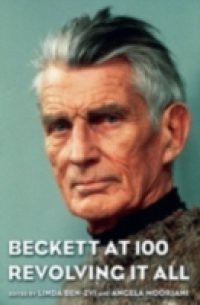The year 2006 marked the centenary of the birth of Nobel-Prize winning playwright and novelist Samuel Beckett. To commemorate the occasion, this collection brings together twenty-three leading international Beckett scholars from ten countries, who take on the centenary challenge of revolving it all: that is, going back to Beckett-the title of an earlier study by critic Ruby Cohn, to whom the book is dedicated-in order to rethink traditional readings and theories; provide new contexts and associations; and reassess his impact on the modern imagination and legacy to future generations. These original essays, most first presented by the Samuel Beckett Working Group at the Dublin centenary celebration, are divided into three sections: (1) Thinking through Beckett, (2) Shifting Perspectives, and (3) Echoing Beckett. As repeatedly in his canon, images precede words. The book opens with stills from films of experimental filmmaker Peter Gidal and unpublished excerpts from Becketts 1936-37 German Travel Diaries, presented by Beckett biographer James Knowlson, with permission from the Beckett estate. Renowned director and theatre theoretician Herbert Blau follows with his personal Beckett thinking through. Others in Part I explore Beckett and philosophy (Abbott), the influences of Bergson (Gontarski) and Leibniz (Mori), Beckett and autobiography (Locatelli), and Agamben on post-Holocaust testimony (Jones). Essays in Part II recontextualize Becketts works in relation to iconography (Moorjani), film theoretician Rudolf Arnheim (Engelberts), Marshall McLuhan (Ben-Zvi), exilic writing (McMullan), Pierre Bourdieus literary field (Siess), romanticism (Brater), social theorists Adorno and Horkheimer (Degani-Raz), and performance issues (Rodriguez-Gago). Part III relates Becketts writing to that of Yeats (Okamuro), Paul Auster (Campbell), Caryl Churchill (Diamond), William Saroyan (Bryden), Minoru Betsuyaku and Harold Pinter (Tanaka) and Morton Feldman and Jasper Johns (Laws). Finally, Beckett himself becomes a character in other playwrights works (Zeifman). Taken together these essays make a clear case for the challenges and rewards of thinking through Beckett in his second century.

